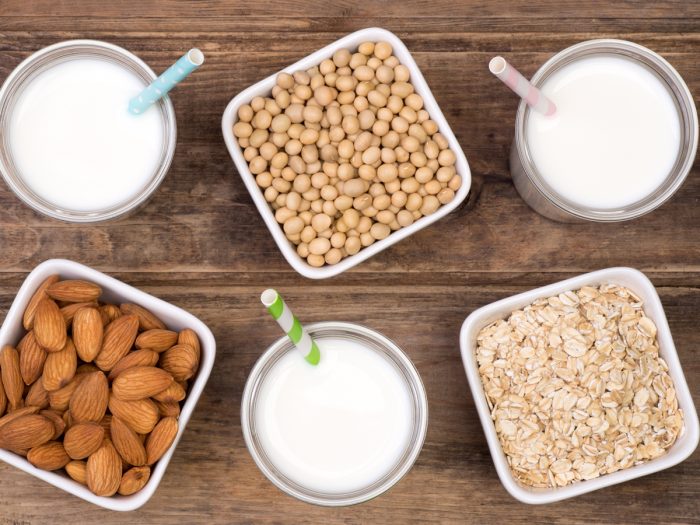Learning about L-leucine and the other compounds we put in our bodies can help us better understand our health and fitness.
What is L-Leucine?
L-leucine is one of the nine essential amino acids. It’s called ‘essential’ because our bodies need it to live and thrive, but we do not produce it on our own, so we must get it through our diet. Amino acids such as L-leucine are the compounds that make protein and protein are what build up our bones and muscles and skin, essentially our bodies! Incidentally, the L refers to naturally produced leucine, but if you find D-leucine, it means that it was produced in laboratory settings, and is generally not recommended as strongly as the natural form. [1] [2]
Health Benefits of L-Leucine
Leucine is a bit like an all natural power boost. You might look to it for any of the following reasons:

Different types of milks Photo Credit: Shutterstock
Increases Energy
Many claim to feel more rejuvenated after workouts if they add this supplement to their pre- or post-exercise routines. [3]
Repair Strained Muscles
Studies show that l-leucine can increase rates of muscle repair after the strain and a reduction in loss of muscle mass due to illness.
Increase Strength
This compound may improve lifting strength, even without increasing muscle mass, making it ideal for weightlifters or athletes that want to maintain an even weight.
Improve Cholesterol Levels
According to a study published in the University of Sao Paolo, Brazil, this amino acid can raise levels of ‘good’ cholesterol and lower ‘bad’ cholesterol, which protects heart health and lowers your likelihood of atherosclerosis, heart attack, and stroke. [4]
Lose Weight
When exercise is combined with taking additional leucine, it is known to improve weight loss over exercise alone.
How to Use L-Leucine?
For otherwise healthy people, a well-balanced diet of lean proteins, whole grains, and a variety of fruits and veggies will provide your body with all the essential amino acids it needs.
If you’re looking to build muscle, however, you might consider adding leucine supplements to your daily diet. Some bodybuilders take up to 500mg per day to help them build muscle mass. It is often found in powder form or capsules. [5]
Always check the ingredients of any supplements. L-leucine has a bitter taste, so there may be added sugars in certain products that could counteract the effects you’re seeking.
Side Effects of L-Leucine
As with most natural health care routines, the key here is moderation. Too much can cause serious health problems. L-leucine may have the following side effects if taken in excess:
- Reduced blood sugar levels
- Reduced serotonin levels
- Depression
- Unexplained anger
- Upset stomach
- Abdominal pain
- Diarrhea
Supplement routines outside of normal diet should be avoided by people with diabetes or hypoglycemia.
